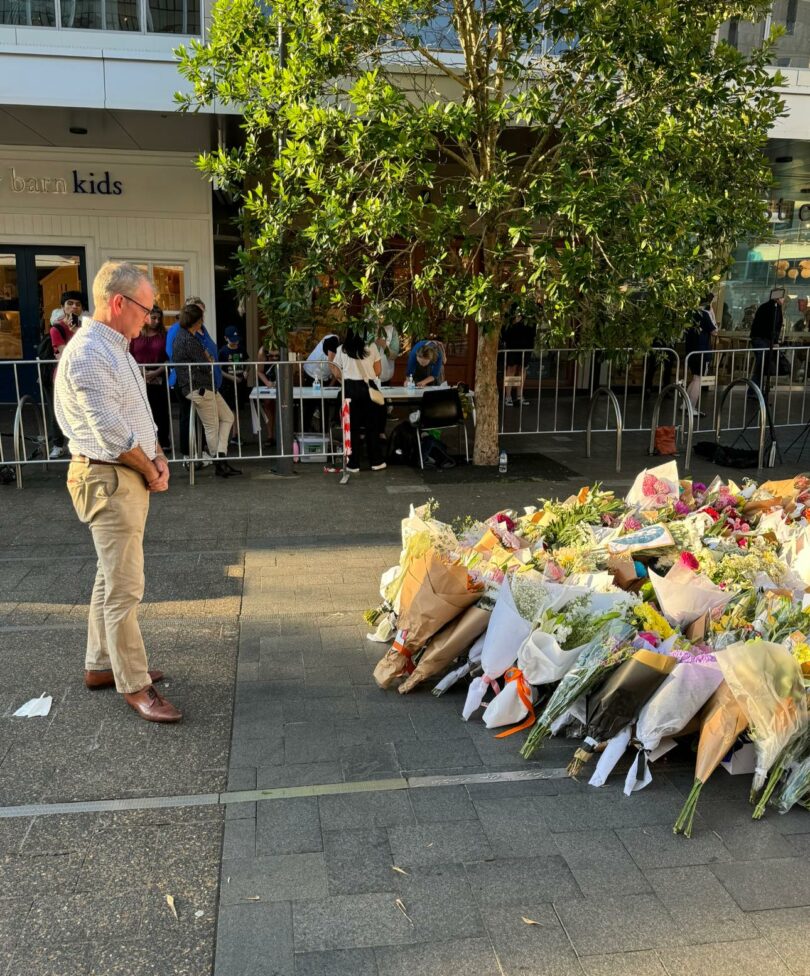Support available following the tragic Bondi Junction incident
Dear Reader,
Our community is in shock following the harrowing incident at Bondi Junction on Saturday. Words cannot describe the horror. Our hearts go out to the victims, their families, and friends.
I also want to extend my deepest thanks to the first responders who attended the scene and the active bystanders who risked their own lives providing assistance to others.

“When I attended the Bondi Junction memorial that sprung up on Sunday I could feel the raw emotion.”
Many across our community will have been impacted either directly or indirectly and it is totally understandable to be struggling right now.
I am reaching out to you because I want everyone across our community to know that there is support out there. No one should feel that they are alone.
Please find here and below information which may be of assistance to you or someone you know.
Michael Daley MP
Member for Maroubra
Overview of support:
– NSW Police have assigned a Family Liaison Officer to support each impacted family of the deceased.
– Victims can access support through the NSW Government’s Victims Support Scheme. Please see below for more detailed information.
– Westfield is providing mental health and counselling support for their staff, retailers and customers by phone, online and in person.
– NSW Health have specialist disaster-trained clinicians at Bondi Junction.
– The NSW Mental Health Line is available 24/7, with specialist staff available to speak to anyone affected by the attack. Call 1800 011 511.
– Members of the community can also contact Lifeline on 13 11 14 or Beyond Blue on 1300 22 4636.
– Mental health services have also been activated for first responders.
|
|
|
|
|
|
|








